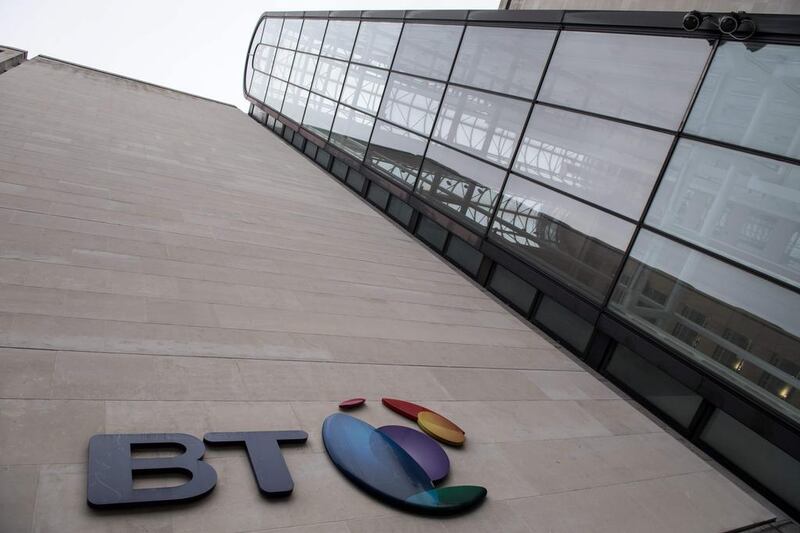Innovation is central to companies making investment choices and underpins their evolution and longevity, the head of global services at UK telco BT said.
"I think [BT Group is] an innovative company. You cannot survive as a company for 180 years without being innovative and it is in its origins, the same company it was long ago," said Bas Burger, chief executive of BT Global Services.
BT Global Services provides communications and IT services to multinational customers wherever they are headquartered, across all sectors such as the big banks, car makers, consumer groups, pharma and airlines including Emirates and Etihad Airways.
BT as a whole has an open innovation policy and works around the world with various institutions. In the Arab world that has included the innovation centre at Khalifa University in Abu Dhabi.
"We very often find that big innovations come from smaller companies and individuals, so we also have a way of incorporating the best ideas into our platforms," said Mr Burger, who spoke on the sideline of the World Economic Forum in Davos.
_____________
Read more:
[ Davos 2018: Middle East to benefit from pick-up in global economy, says Standard Chartered CEO ]
[ Davos 2018: National Bank of Bahrain looks to expand business in Gulf markets, CEO says ]
______________
"The business I lead is a very long-term focused business so you need to have a point of view on some of the long-term issues we face and you need to try to influence the direction in which we are going to solve these issues," he said.
Basically, "any company that has a global presence and needs a global network which is managed and secure", said Mr Burger, who took on his current role in June after heading up the Americas for parent BT and is close to marking ten years with the company.
In that time, customers have gained more awareness in new areas such as around cybersecurity and sustainability, which provides additional costs but also fresh opportunity.
"We can answer all these questions in a complex way. Don't forget that the dependence on the network to actually work increases as well. Today most factories, for example, will have full stop, if they don't have network, within the hour," he added.
BT Global Services invests in communications infrastructure such as sub-sea cables or satellite capacity, technology as well as security and human capital.
However, the industry is no longer dealing with outsourcing as it used to due to changing technology.
"Big outsourcing deals where people say here is all my complex IT, now you are going to manage it for less money, that is no longer fashionable," Mr Burger said. "What does happen now is people don't outsource now, they 'out-task'. So, they give a particular task to an application in the cloud."
The company also provides specialised call centre systems "in the cloud", which are very important for clients, especially airlines. Machine learning is being increasingly used in these call centres, which requires a lot of data that can be used to effectively manage these facilities.
Since assuming the chief executive role in June, Mr Burger has been overseeing the start of BT Global Services' two-year restructuring plan. The division has been the target of some shareholders and analysts who question its international focus and compatibility with the broader group's core business in the UK.
Mr Burger disagrees. He is certain that providing an international operation is good for BT in the long run.
"Focusing on the top 800 clients, multinationals globally... that is the direction that we are taking and that is absolutely important for BT," he said.







